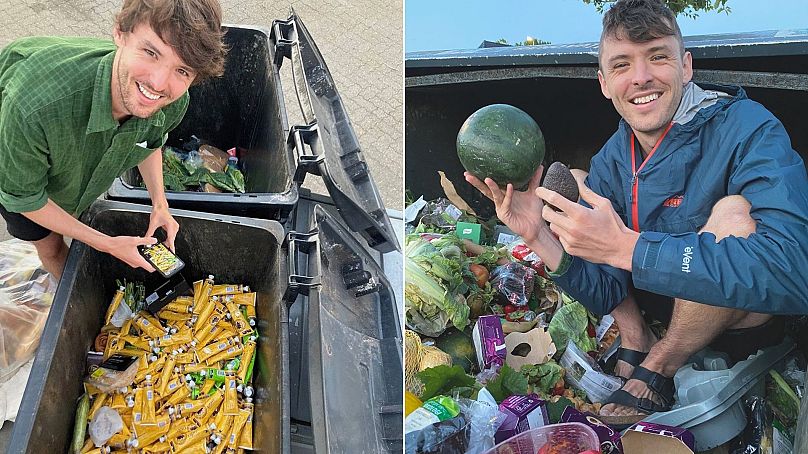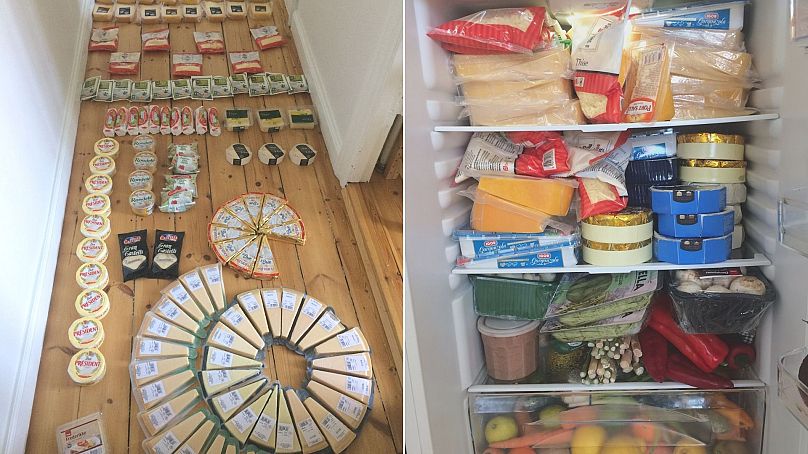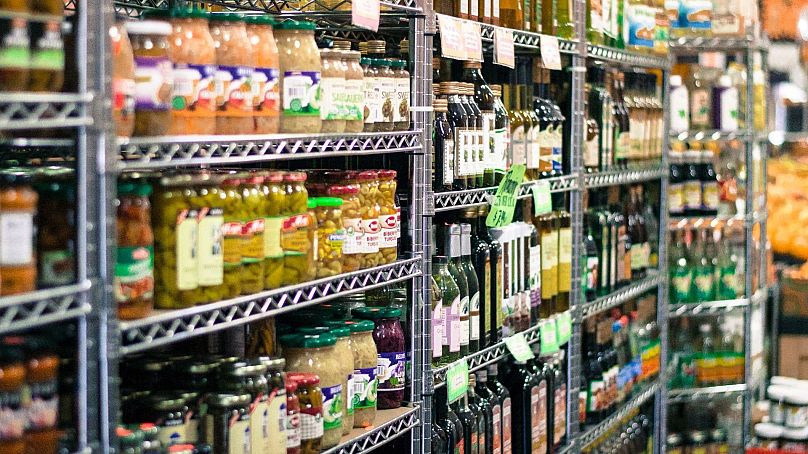Campaigner Matt Homewood explains how companies embed food waste into their profitable business models and why we need to hold them accountable.
I’m food waste campaigner, Matt, and I dumpster dive to expose retailers’ shocking business practices.
 ADVERTISEMENT
ADVERTISEMENT
 ADVERTISEMENT
ADVERTISEMENT
Since starting my Instagram page, An Urban Harvester, in 2019, I have seen all manner of discarded produce, from piles upon piles of bread loafs to pristine fruit and vegetables which should never have been trashed.
Despite recently winning a United Nations prize for my activism, I still don’t feel victorious as I pose for yet another photo atop of yet another food waste mountain, on a daily basis.
Discovering supermarkets’ dirty secrets
Over these last two years, I have realised that even though global food waste is a complex issue, it is being tackled irrationally. While key reports such as the 2021 United Nations Environment Programme Food Waste Index do cite supermarkets as part of the problem, most blame is laid at the door of the consumer.
Yet the commercial supply chain’s food waste is an entirely separate issue and arguably much bigger.
This is because companies embed food waste into their profitable business models, whereas consumers are just chucking their own wages out the window when wasting food at home.
When the average person thinks of ‘food waste’, they probably think of a few rotten apples lying in a compost heap. What they probably don’t think of is:
- 157 packets of bacon
- 900 cow cream tubs
- 800 caged eggs
- 300 mayonnaise tubes
- 300 litres of cow milk
- 180 coffee bags
- €1,000 worth of cheese
And yet this is exactly what I have been harvesting by bicycle at my local supermarkets in Copenhagen.
In 2021 alone, I have found trashed Uruguayan beef on three separate occasions. If you’re unfamiliar with the distance between Montevideo and Copenhagen, let me help you: it’s 11,980 kilometres.
Environmentally, beef is one of the most destructive foods on the planet, and yet it is a disturbingly common find in supermarket dumpsters.
And it isn’t just Danish supermarkets. Scores of urban harvesting activists based in the Global North post daily evidence as to just how much perfectly edible food is being thrown out daily.
This food waste epidemic is having far-reaching impacts on people and planet. Before the COVID-19 pandemic, 2 billion people suffered from food insecurity. The latest IPCC and WWF reports indicate that the climate and biodiversity crises are ever worsening.
With global food waste responsible for 8 per cent of greenhouse gas emissions, the climate solutions organisation Project Drawdown deems 'Reduced Food Waste' as the most effective solution to keeping global warming within 2°C.
Delving into Denmark’s food waste
I decided to focus on my adopted country, ironically reputed for its ‘sustainability’.
Denmark’s 2,790 supermarkets throw out 96,000,000 kilograms of food annually (i.e. 230,400,000 meals), although as retailers’ data is supplied on a voluntary basis, scepticism is the order of the day.
Since the media is so focused on making sure you’re composting your carrot tops, it’s worth noting that a Danish citizen wastes 48 kg of food per year. So, on a per person basis, a supermarket is 800 times more wasteful than the average Dane.
Crucially though, vastly more food waste happens further up the supply chain, much of it caused by the way powerful supermarkets do business with their suppliers. In Denmark, food processors waste 385,000,000 kg of food every year. Up to 43 per cent of this waste is ‘ugly’ foods that don’t meet supermarkets’ stringent cosmetic standards.
These exact criteria are responsible for almost all the farmers’ 44,000,000 kg of annual food waste. For example, French retailers deem that any potatoes measuring less than 35 mm or more than 70 mm are unsellable and so are rejected. These rejects can total 20 per cent of a farmer’s harvest.
And the strict standards are just one of the many consequences of retailers’ oligopoly.
So how to solve this supersized supermarket scandal?
Let’s start with the non-solutions. The charitable donation model is flawed – food banks and WeFood social supermarkets recover only 1.8 per cent of Danish retailers’ food waste.
Conflating supermarket food waste and economic poverty has resulted in neither issue being solved, as academics and NGOs repeatedly stress. Retailers use apps like Too Good To Go as greenwashing tools as they place a cap on the number of daily bags sold (approximately five per day in a Danish supermarket) – regardless of the amount of food about to expire.
So what are the solutions, then?
I am currently co-organising a citizen proposal to demand Danish Parliament debates retailers’ profligate practices. Most in-store supermarket food waste is happening because prices are kept too high for too long in relation to legal ‘expiry’ dates. With steeper and timelier discounts, food would more likely sell instead of ending up in the bin.
The financial penalties for dumping food are no longer fit for purpose. A significant food waste tax would trigger supermarkets to invest in the many technologies available to streamline their operations.
For example, Whywaste’s artificial intelligence tools improve forecasting, Wasteless provides dynamic pricing solutions, Gander and Throw No More digitalise discounted products to local consumers, GS1’s 2D barcodes improve stock management possibilities, and Apeel keeps produce fresh for twice as long.
The government could facilitate sales by cutting the 25 per cent VAT for discounted goods.
Greater transparency regarding food waste data reporting is required with independently verified checks. Excessively cautious labelling strategies need revamping too - a French yoghurt manufacturer showed that 45 days past its ‘use by’ date, yoghurt posed zero health risk.
An Urban Harvester has united thousands of people shocked by the state of the global food system. The upcoming campaign will hopefully put things right, but we need 50,000 signatures by December. So, look out for the petition, spread the word, and go explore your local supermarket dumpsters.














